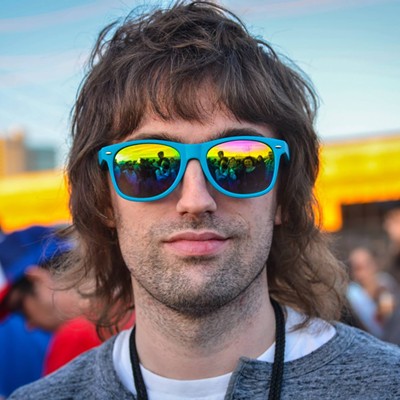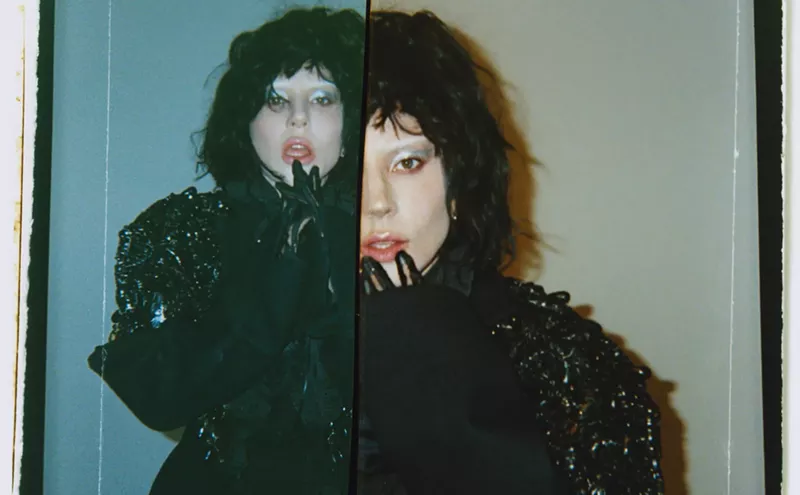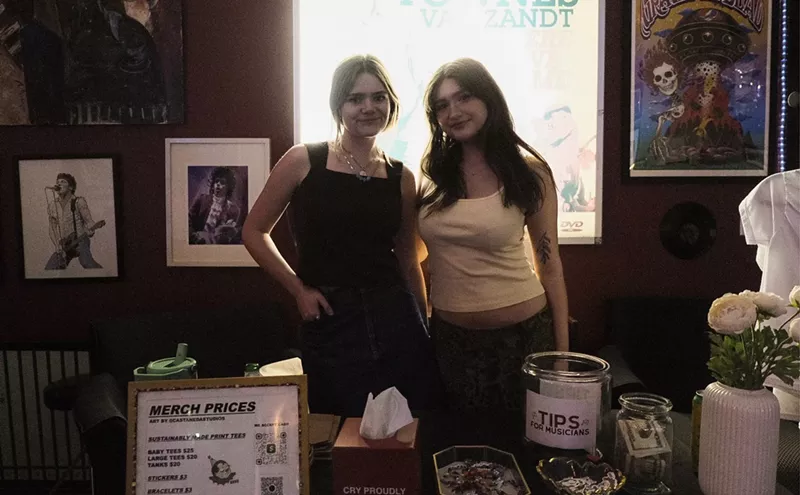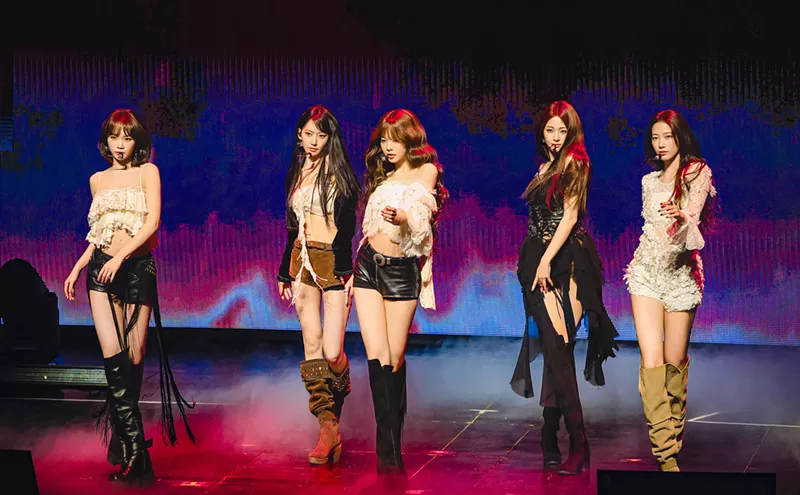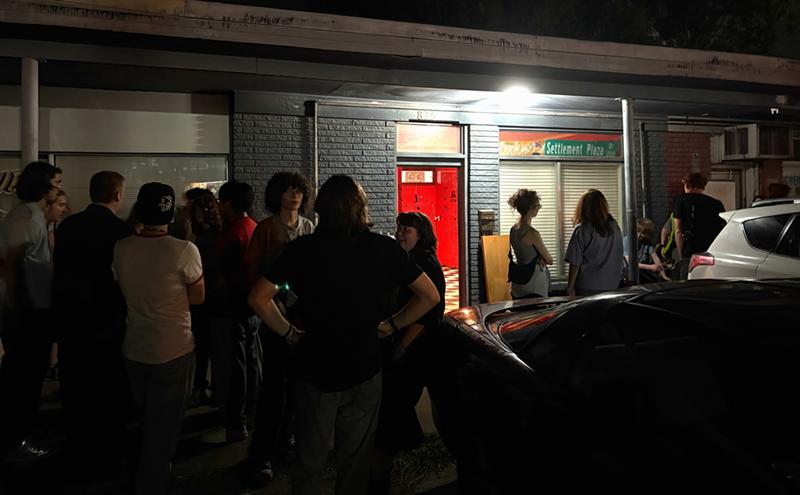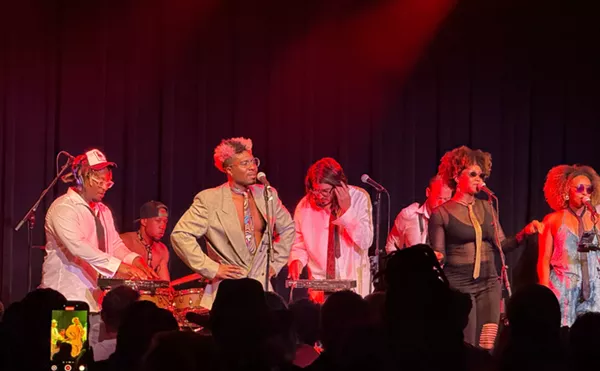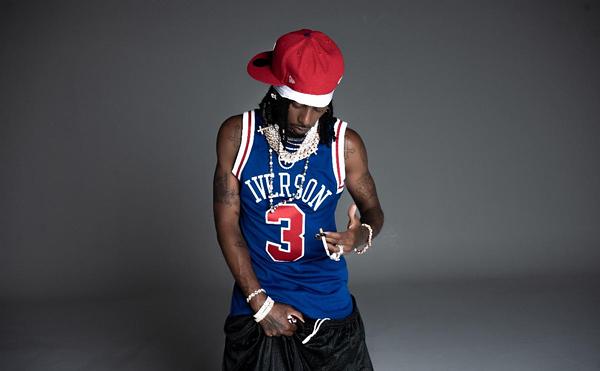The scene downtown was a concert promoter's dream: At 4:30 in the afternoon, the line outside Main Street Garden Park stretched around the block and down the street, but none of these people waiting outside the gate for Taco Libre was going to get in. Gates had opened for this taco- and wrestling-themed music festival less than three hours earlier, and already it was at capacity.
Not bad for a first-time festival.
That scene last month stood in contrast to some other newcomer festivals. Already this year we've seen one festival, Dallas Arts District, draw a woefully small turnout, while another — Timescape in Arlington — didn't even make it to the starting line. Meanwhile, KXT's fourth-year Summer Cut will bring Belle and Sebastian to town in August, but the festival has downsized from Gexa Energy Pavilion to South Side Ballroom at Gilley's, with a smaller lineup of mostly local artists.
But at least one corner of the market seems to have hit on a winning formula: combination food-and-music festivals.
"The combination of food and music is something that's always been there. It's just now reaching a peak where there are food and music festivals," says Tami Thomsen of Kirtland Records, the organizers behind Taco Libre. "You eat every day, and food has always brought people together. It's a natural thing; food is just having its moment right now."
The trend isn't limited to food. Earlier this week, beer and music festival Untapped — which also has events in Fort Worth, Houston, San Antonio and, as of this year, Austin — announced a lineup topped by Flaming Lips and a move from the Gilley's Complex to Fair Park which they hope will nearly double its attendance this year. "Most of the Untapped series will continue to live in the 6,000- to 7,000-person range, but Dallas is the one we plan to continue to stretch," says Matthew Harber, co-founder of Untapped and its parent company, Spune. "We are hoping for 12,000 this year."
Other more traditional music fests like Spillover and Homegrown have built a popular fan base over the past half decade and more in Deep Ellum and downtown. Up in Denton, Oaktopia is looking to continue expanding as it enters its third year. Homegrown, which has been going for six years, also takes place in the 5,000-or-so-person-capacity Main Street Garden, but even they don't find themselves turning away the scads of people Taco Libre was faced with in its first event. (This year Homegrown was forced to move indoors because of weather.)
Compare the draw for Untapped with Spune's other marquee festival, Index — the largest music festival within Dallas city limits — and the contrast comes into starker relief. Harber says the turnout for Index in 2014 was also roughly 12,000 people, but that was spread across three days. (Untapped drew more than 7,000 in its single day at Gilley's last year.) Index is set to return to its previous two-day format this year.
"It's not easier to necessarily attract the people, but you do have more content to work with in marketing the event," Harber says of the hybrid model. Having the extra incentive of craft beer or gourmet food helps, but it goes hand in hand with a distinct musical brand: "We aim to curate a certain taste, but for the event to grow we will have to attract a new crowd and a lot of that will be related to the bands that play the event."
Curating the food and drink certainly also seems to help. Festivals such as Index, Spillover and Homegrown all pride themselves on "curated" lineups, but Taco Libre and Untapped get to hone in on something even more specific. For Taco Libre, it built a theme around Latino culture, including not just the tacos but lucha libre wrestling and a few Latin bands mixed in with rock and pop acts, among them Deep Blue Something. The conga lines that broke out during Ozomatli and Piñata Protest's sets, plus the crowds who set up camp in front of the wrestling rather than the music stage, suggested the festival had tapped into a whole other fan base.
"I have to give credit where credit is due: We partnered with [The Taco Trail's] Jose Ralat, so we could make it as authentic as could be," Thomsen says. "It was a great response to all the taquerias across the board. ... And the lucha libre wrestling was just a riot."
Dallasites clearly aren't the only people who enjoy tacos or beer, so a winning formula might help combat the sprawl that fragments local music fans. With so many festivals and other attractions vying for peoples' attention — "You have to work for every damn ticket you sell," Thomsen says — every extra incentive helps when you're trying to convince a fan to drive an extra mile or 20 to shell out more of their money.
"I live in Frisco and if you give me something worth driving for I am going to attend," Harber says. "If I were going to say anything it would be that the market is very fragmented and there is not always a strong common identity... More perhaps than the other cities, in Dallas everyone is very proud (or not) of their neighborhood or scene and sometimes it seems the community as a whole can be very fractured at times.
"I don't think the food or drink necessarily erases that but maybe it neutralizes it a bit," he adds. "But I still think it primarily broadens the appeal."
Follow @DC9AtNight

Audio By Carbonatix
[
{
"name": "GPT - Billboard - Slot Inline - Content - Labeled - No Desktop",
"component": "21721571",
"insertPoint": "2",
"requiredCountToDisplay": "2"
},{
"name": "STN Player - Float - Mobile Only ",
"component": "21861991",
"insertPoint": "2",
"requiredCountToDisplay": "2"
},{
"name": "Editor Picks",
"component": "17105533",
"insertPoint": "4",
"requiredCountToDisplay": "1"
},{
"name": "Inline Links",
"component": "18349797",
"insertPoint": "8th",
"startingPoint": 8,
"requiredCountToDisplay": "7",
"maxInsertions": 25
},{
"name": "GPT - 2x Rectangles Desktop, Tower on Mobile - Labeled",
"component": "22608066",
"insertPoint": "8th",
"startingPoint": 8,
"requiredCountToDisplay": "7",
"maxInsertions": 25
},{
"name": "Inline Links",
"component": "18349797",
"insertPoint": "8th",
"startingPoint": 12,
"requiredCountToDisplay": "11",
"maxInsertions": 25
},{
"name": "GPT - Leaderboard to Tower - Slot Auto-select - Labeled",
"component": "17357520",
"insertPoint": "8th",
"startingPoint": 12,
"requiredCountToDisplay": "11",
"maxInsertions": 25
}
]

